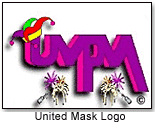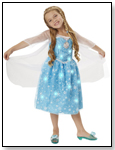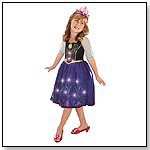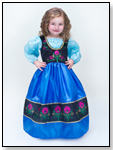|
|
Capitalizing on Worldwide Halloween BOOm U.S. Manufacturers Grow International Sales
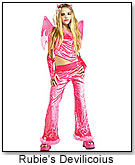
One U.S. company is doing just that. Over the past few years, Rubies Costume Company, headquartered in Queens, N.Y., has acquired costume companies in a number of countries, which has put Rubies in prime position to sell to those markets, according to executive vice president Howard Beige. Rubies currently operates facilities in England, France, Germany, Spain, Portugal, Germany, Columbia and Japan. Japan is a particularly hot market, Beige said. “The Japanese respect quality, and they consider American-made products to be very good quality.” Canada and the United Kingdom are the largest export markets for United Mask and Party Mfg. Inc., a company located in Sebring, Fla. “The biggest deterrent in export is the expensive shipping and getting the names and addresses verified on the credit cards or PayPal,” said company president Valerie Murray. Items that sell well in Japan and other foreign countries include those made popular by movies and television shows. For the 2006 Halloween season, Beige expects costumes based on characters from the following stories to sell well: “Superman Returns” (a movie scheduled for release in June), “Miami Vice” (a movie to be released in July), “Curious George” and “Magical Do Re Mi” (two upcoming TV series), and “Mermania” and “12 Dancing Princesses” (both Barbie entertainment properties that will include toys, other merchandise and DVDs). Murray predicts an increase in “happier costuming,” such as fairies, as well as themes like pirates and bikers. “Since 9/11, we have seen a big drop in horror costuming,” she noted. The increased popularity in Halloween worldwide has been rapidly growing for about the past five years, Danny Stein, co-owner of Cinema Secrets in Burbank, Calif., said. In terms of marketing, the Internet has had tremendous impact. According to Mikayla Cole, executive assistant at Cinema Secrets, it used to be harder for foreigners to purchase American merchandise. “Now, with one click of the mouse, they can pull up any costume or makeup item they would find in a store. It definitely has a huge impact.” One of the challenges to selling in foreign markets is that many buyers are used to purchasing lower-end, lower-priced merchandise, Stein said. “We sell more mid- to higher-end merchandise. The only thing to do to compete is to try to import lower-end stuff, while trying to keep the quality where it is.” Although participating in foreign trade shows would seem to be a good approach to marketing merchandise worldwide, Stein has not found that to be the case. Instead, he thinks the key to his company’s worldwide marketing success will be hiring and utilizing distributors and sales reps in other countries. Offering other items besides just costumes could be a profitable idea, Beige believes. “It’s not just costumes, wigs and makeup, it’s the home décor items [that are popular overseas].” He notes that when his company first started selling items in Japan, they tried to figure out how to translate “Happy Halloween” into Japanese. They were told to leave it in English. “This was quite a learning experience for us. [The Japanese] are celebrating it as an American holiday.” That holds true in other foreign markets, as well. Beige believes that foreigners see Halloween not necessarily in terms of trick or treating, but rather as a family event. “It’s the Halloween parties and dressing up that’s catching on in other countries. It’s a day you get to dress up and fantasize. It’s just basically a fun event for the family. That’s the part they’re adopting.” Writer's Bio: Margaret H. Evans is a freelance writer and mother of four. She lives with
her husband and children in Bountiful, Utah.
Read more articles by this author
|
|
Disclaimer Privacy Policy Career Opportunities
Use of this site constitutes acceptance of our Terms of Use.
© Copyright 2025 PlayZak®, a division of ToyDirectory.com®, Inc.

